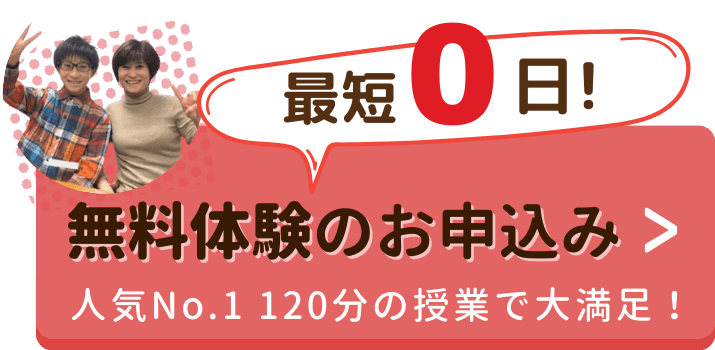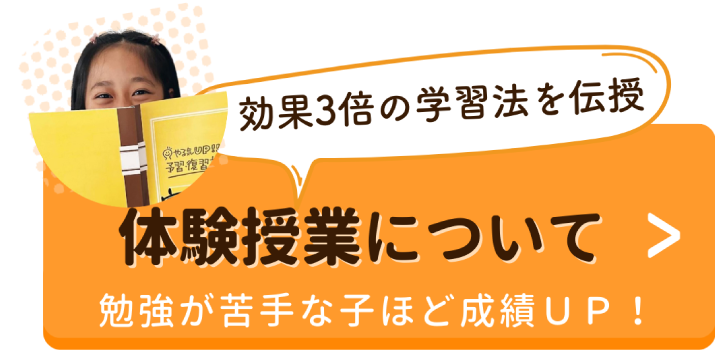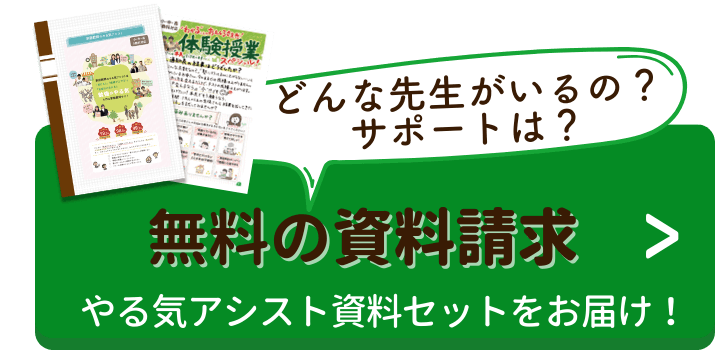






京都府の2023年3月実施の令和5年度(2023年度)入学者の公立高校入試問題の解説をしています。
受験勉強において、過去問を解くことはとても効果的な勉強法です。ぜひ、受験までに一度挑戦し、問題の傾向を掴んでおきましょう。合わせて、対策などをたてられるととても良いですね。
また、過去問で苦手な点が見つかった場合は、そこを中心に試験日当日までにしっかりと対策しておきましょう。
次の英文は,中学生の紀実子(Kimiko)が行ったスピーチである。これを読んで,問い(1)~(2)に答えよ。
My grandfather is a *potter. He makes *ceramic works from *clay, and I like his ceramic works.
When I went to his shop one day, I saw his ceramic works and I wanted to make ceramic works like him. He asked to me, “Do you want to make caps?” I was happy to hear that. I first tried to make a cup from clay, but I couldn’t make the shape of it well *by myself. He helped me, and I could make the shape of it. Then, he told me that he was going to *dry -the cup and *bake it. A month later, he brought my cup to my house, and gave it to me. I was happy when I saw ①it. I made cups a few times at his shop after that.
When one of my friends ②(come) to my house, I showed her my cups. She said they were nice and asked, “Where did you make them?” I answered, “My grandfather is a potter and I made them at his shop.” She asked, “Was it easy to make these shapes from clay?” I answered, “No, it was difficult.” She asked, “How long did you bake them?” I answered, “I’m not sure about that because my grandfather baked them.” Then, she asked some questions about ceramic works, but I couldn’t answer them, and I realized I didn’t know much about ceramic works. I thought I needed to learn about them.
I went to a library to learn about ceramic works after she went back home. I read a book about a kind of ceramic work in Japan. I learned how to make the clay used for the ceramic work, and I also learned that the clay is baked in a *kiln for twenty hours after making a shape. I didn’t know those things, and I wanted to make a ceramic work from the first *process. So,③l decided to visit my grandfather’s shop to do that,and I told him that on the phone. He told me to visit his shop when I was free.
After a few days, I went to his shop. He took me to a mountain to get *soil and then we went back to his shop. We put the soil and some water in a box, and *mixed them well. He said, “I’m going to dry this. I need a few days to *change the soil into chat.” I went to his shop every day to see how it was changing. A few days later, he said,“The clay is ready, so 【 ④ 】.” I decided to make a *plate, and I began to *knead the clay. I tried to make the shape, but it was difficult to make it by myself. However, I tried to make it many times and finally made it. He said, “I will dry your clay plate to *take out the water. It will be ⑤(break) if I bake it in my kiln now.” After one week, he put my clay plate in his kiln, and he said, “I’m going to bake your clay plate in this kiln for ten days. This is dangerous because it is very hot in the kiln. I need a lot of wood to bake your clay plate, so ⑥[(ア) want / (イ) bring / (ウ) I / (エ) to / (オ) you / (カ) the wood] to me.” I carried the wood many times. After about ten days, he took out my plate from his kiln. When I got my plate from him, I looked at it and thought about the things I did to make my plate. I thought making my plate was not easy, but I had a good time because I could see every process with my own eyes. I also thought my grandfather did a lot of things to make his nice ceramic works and his job was really nice.
Before I read a book about a ceramic work and made my plate, I only knew how to make the shape of the cups and just enjoyed making them. I didn’t know much about ceramic works. However, I learned a lot through the experience at my grandfather’s shop, and I realized that the process to make ceramic works was hard but it was fun. I was happy to learn that. Since then, I have been learning more about them, and now I want to make nice ceramic works by myself in the future.
(注) potter 陶芸家
ceramic 陶磁器の
clay 粘土
by myself 私自身で
dry ~ ~を乾かす
bake ~ ~を焼く
kiln 窯
process 工程
soil 土
mix~ ~を混ぜる
change ~ in to … ~を…に変える
plate 皿
knead ~ ~をこねる
take out ~ ~を取り出す
(1) 下線部①を指す内容として最も適当なものを, 次の(ア)~(エ)から1つ選べ。
(ア)the clay which Kimiko made at her grandfather’s shop
(イ)the clay which Kimiko’s grandfather used for his ceramic works
(ウ)the cup which Kimiko’s grandfather helped her make
(エ)the cup which Kimiko dried and baked at her house
(2) 下線部②(come)・⑤(break)を,文意から考えて,それぞれ正しい形にかえて1語で書け。
(3) 次の英文は,下線部③について説明したものである。
これを読んで,下の問い(a) ・(b)に答えよ。
To learn about ceramic works, Kimiko went to 【ⅰ】 and found some things about a kind of ceramic work by reading a book. Then, she decided to visit her grandfather’s shop because she wanted to make a ceramic work 【ⅱ】.
(a) 本文の内容から考えて,【ⅰ】に入る表現として最も適当な部分を,本文中から2語で抜き出して書け。
(b) 本文の内容から考えて,【④】に入る表現として最も適当なものを,次の(ア)~(エ)から1つ選べ。
(ア) with one of her friends
(イ) from the first process
(ウ) after she went back home
(エ) without his help
(4)【ⅱ】に入る表現として最も適当なものを,次の(ア)~(エ)から1つ選べ。
(ア) you can use it to make something
(イ) you should visit my shop to make it
(ウ) I will show you the way to make it
(エ) we have to go to the mountain again
(5)下線部⑥の[ ]内の(ア)~(力)を,文意が通じるように正しく並べかえ,記号で書け。
(6)本文の内容から考えて,次の〈質問〉に対する答えとして最も適当なものを,下の(ア)~(エ)から1つ選べ。
〈質問〉 What did Kimiko’s grandfather do when she first tried to make a cup?
(ア) He asked her to make the shape of it for him.
(イ) He supported her when she made the shape of it.
(ウ) He told her to be a potter like him in the future.
(エ) He showed his ceramic works to make her happy.
(7) 本文の内容と一致する英文として最も適当なものを、次の(ア)~(エ)から1つ選べ。
(ア) The questions Kimiko’s friend asked were difficult, but Kimiko could answer all of them.
(イ) Kimiko and one of her friends visited Kimiko’s grandfather and went to a mountain to get soil.
(ウ) Kimiko kneaded the clay she made with her grandfather, and then she decided what to make.
(エ) After Kimiko’s clay plate was dried for a week, her grandfather put it in his kiln and baked it there.
(8)次の英文は,このスピーチを聞いた中学生の奈緒子(Naoko) と留学生のジョ ージ(George) が交わしている会話の一部である。これを読んで, 下の問い(a) ・ (b)に答えよ。
Naoko : I have found something important in Kimiko’s speech.
George: What is that?
Naoko : Well, Kimiko liked her grandfather’s ceramic works, but she only knew the 【ⅰ】 to make the shape of the cups before she read a book about a ceramic work and made her plate at her grandfather’s shop.
George : Do you mean she didn’t know much about ceramic works?
Naoko : Yes, she said so. However, 【ⅱ】 at her grandfather’s shop, she learned that making ceramic works was hard but it was fun, and she was happy to realize that. Since then, she has been learning about ceramic works.
George : I see.
Naoko : I understand how she feels. When I learn something by myself and know many things about it, I become happy and want to know more about it.
(a)本文の内容から考えて,【ⅰ】に入る最も適当な語を,次の(ア)~(エ)から1つ選べ。
(ア)answer
(イ)goal
(ウ) topic
(エ) way
(b)本文の内容から考えて,【ⅱ】に入る表現として最 も適当な部分を本文中から3語で抜き出して書け。
(1) (ウ)
(2) ② came ⑤ broken
(3) (a) a library (b) (イ)
(4) (ア)
(5) (ウ)→(ア)→(オ)→(エ)→(イ)→(カ)
(6) (イ)
(7) (エ)
(8) (a) (エ) (b) through the experience
(1) まず、it は前文にあるmy cup のことである。すると(ア)と(イ)ではない事が分かる。次に、その my cup は「紀実子の祖父が、紀実子が作るのを手伝ってくれたカップ」なので(ウ)が正しい。
(2) ②が含まれている文章(When one of my friends ②(come) to my house, I showed her my cups. )を訳すと、(私の友達の1人が家に来た時、私はカップを見せた。)となり、過去のことを言っていると分かる。よって、comeの過去形のcameが答えとなる。
⑤は直前にbeとあるので受動態にする。よってbreakの過去分詞形のbrokenが正しい。
(3) この短文は、③の少し前)まで(第4段落)の内容を要約したものである
(a) 第4段落の1文目の When I went to a library〜 を参照。
(b) ③直前の I want to make 〜 from the first processから(イ)が適切。
(4) 「粘土の準備が出来たので」に続いて、次の文「私はお皿を作ることに決めて〜」に上手くつながる表現は、(ア)が適切。
(5) <want to do>の want と to の間に人を入れて<(人)に〜してほしい>という表現をつくることができる。→ I want you to bring the wood が解答。
(6) 質問は「紀実子の祖父は紀実子が最初にカップを作ろうとしたとき、何をしたか。」
序盤の内容に対する質問である。第2段落の He helped me, and I could make the shape of it. が解答につながる。
(7) (ア)第3段落の最後、she asked some questions about ceramic works, but I couldn’t answer them,より不適切。(イ)第5段落2文目He took me to a mountain to ~より、友達は行っていないと分かる。(ウ)空所④の直後の文より、何かを作るかを決めてから粘土をこねたので、不一致。
(8) 最終段落第1文目。 the way to make the shape of the cups から way。(b)最終段落第3文にある、 through the experience at my grandfather’s shop (店での経験を通して) から
through the experience。
次の英文は, 高校生のまみ(Marni)と留学生のジー ナ(Gina)が交わしている会話である。 あとのリスト(list)を参考にして英文を読み,あとの問い(1)~(4)に答えよ。
Gina : What are you looking at, Marni?
Mami : I’m looking at a list of English books. Our English teacher Ms. Smith gave this to me yesterday. I started reading English books last month and asked her to tell me good books. The *comments on the list are her comments about each book. I’ll go shopping tomorrow and buy some of the books on the list.
Gina : Can I see it? Oh, I think you should read this book. I haven’t read it, but look at the comment. You are interested in the U.S., right? You can learn about many famous places there if you read it.
Mami : Wow, that’s nice. I’ll buy it.
Gina : How about “The Blue Sky”? I first read it
when I was little and it was very interesting. You should also buy it.
Mami : Then, I’ll buy it, 【①】.
Gina : I heard the writer of the book is liked by a lot of people in Japan. Look at the comment. The same writer wrote “The White Sea”. I like the writer, so I want to read it someday. Have you read it before?
Mami : No, but this story is in our English *textbook. We will read the story in the class, so I will not buy it. Well, I want to read “Our Memory”, but I think it is difficult. Have you ever read it?
Gina : No, but if you want to read it, you should read it. I’ll help you if you can’t understand the book.
Mami : Thank you. I’ll also buy it.
Gina : How about this book? -I haven’t read it, but I think you can learn a lot about English.
Marni : I have read it before, so I will not buy it. It tells us many interesting facts about English words and I learned about the *origin of the names of the months. For example, September means “the seventh month.”
Gina : Wait. Today, September is the ninth month of the year, right?
Marni : Yes. Let me talk about the history 【②】When people began to use a *calendar, there were only ten months in a year, and the year started in March. September was really the seventh month then. The book says that there are some *theories, but it introduces this theory.
Gina : I see.
Marni : Oh, I think I chose【③】many books. I don’t think I have enough money.
Gina : Well, look at the list. I don’t think you need to buy④this book. I found it at the library in our school. I’ve liked it since I first read it, so I was happy when I found it there.
Mami : I see. So, I will not buy it tomorrow and I’ll visit the library next week. Thank you.
| Name of Book | Comment |
| (ア) Lily | A girl called Lily visits many famous places in the U.S. You can learn a lot about them with pictures taken by the writer. |
| (イ) Our Memory | A girl goes abroad and studies about AI. There are some difficult words in this book. |
| (ウ) The Blue Sky | This is a story about a boy who goes to the future. The writer of this book is liked by many people in Japan and the writer also wrote “The White Sea”. |
| (エ) The Past | A boy travels to the past and learns about the origin of English words. |
| (オ) The White Sea | A small cat visits a city in the sea. There are many pictures in this book. The writer drew them and they will help you understand the situations. |
(注)comment コメント
textbook 教科書
orign 起源
calendar 暦
theory 説
(1)【①】・【③】に共通して入る最も適当な1語を書け
(2)【②】に入る表現として最も適当なものを,次の(ア)~(エ)から1つ選べ。
(ア) to tell you the reason
(イ) to buy the book tomorrow
(ウ) to write a comment about each book
(エ) to learn about Japanese words
(3)本文とリスト(list)の内容から考えて,下線部④にあたるものとして最も適当なものをリスト(list)の中の(ア)~ (オ)から1つ選べ。
(4)本文とリスト(list)の内容と一致する英文として最も適当なものを,次の(ア)~ (エ)から1つ選べ。
(ア) Mami says that she decided to start reading English books because Ms. Smith gave her the list.
(イ) The writer of “The Blue Sky” is popular in Japan and Gina knew that before she talks with Marni.
(ウ) Through the comments, Ms. Smith tells Marni that there are some difficult words in “The Past”.
(エ)Many pictures taken by the writer help people understand the situations in “The White Sea”.
(1) too
(2) (ア)
(3) (ウ)
(4) (イ)
(1) ①ジーナは2番目の発言で1冊を推せんし,直前の発言でもう1冊を推せんしている。Then, Ill buy it, too.「では,私はそれも買います」③ Oh, I think I chose too many books.「ああ、私はあまりにも多くの本を選んでしまったと思う」それぞれのtooが違う意味で使われている。
(2) その前で,まみとジーナは「Septemberは『7番目の月』という意味」「Septemberは1年の9番目の月でしょう?」というやりとりをしている。(ア)「その理由を述べるために、その歴史について話をさせてください」とするのが適切。
(3) ジーナが読んだことがあったのは(ウ) the blue sky のみである。よって(ウ)。
(4) (ア)「まみはスミス先生からそのリストをもらったので、英語の本を読み始めようとした」 まみの最初の発言に不一致。先月から読んでいて、スミス先生によい本を教えてと頼んだら昨日リストをもらった。
(イ)「The Blue Skyの筆者は日本で人気があり、ジーナはまみと話す前にそのことを知っていた」ジーナの3番目と4番目の発言に一致。
(ウ)「本のコメントを通してスミス先生は、 The Pastにはいくつかの難しい単語があると、まみに伝えた」 The Pastのコメントに不一致。難しい単語があるのは、Our Memory。
(エ)「筆者によって撮られた多くの写真は、人々がThe White Seaの話の状況を理解する助けとなる」リストのThe White Seaのコメントに不一致。筆者が描いた絵についてコメントしている。pictureには「絵」と「写真」の2つの意味があるがtake pictures では「写真を撮る」、draw picturesでは「絵を描く」。
それぞれの質問に対する答えとして最も適当なものを(ア)~(エ)から1つずつ選べ。
放送内容
3は(1)・(2)の2つがあります。それぞれ短い会話を放送 します。次に,Questionと言ってから英語で質問をしま す。それぞれの質問に対する答えとして最も適当なものを, (ア)・(イ)・(ウ)・(エ)から1つずつ選びなさい。会話と質問は2 回放送します。
(1)
A : Hi, Kana. What are you reading?
B : Hi, Jenny. I’m reading a letter from Mary. She is one of my friends. I met her when I was in America. I’m happy that she will come to Japan next month to meet me.
A : That’s great. I want to meet her, too.
B : OK. I’ll tell her about that.
Question : Why is Kana happy?
(2)
A : Nancy, which cake will you eat today? This month, we can choose the special chocolate cake or the special strawberry cake at this shop.
B : Well, last week, I ate the special chocolate cake. It was delicious.
A : Then. I’ll have the special chocolate cake and tea.
B : I see. I want to eat something I have not tried yet, so I’ll have this special cake and coffee today.
Question: What will Nancy have at this shop today?
(1)
(ア) Because Mary will come to Japan next month.
(イ) Because Mary met her in Japan.
(ウ) Because she is writing a letter for Jenny.
(エ) Because she will visit America.
(2)
(ア)The special chocolate cake and tea.
(イ) The special chocolate cake and coffee.
(ウ) The special strawberry cake and tea.
(エ) The special strawberry cake and coffee.
(1) (ア)
(2) (エ)
(1) 質問は「カナはなぜうれしいのか」。カナの I’m happy that she will come to Japan next month〜 .が聞き取れると(ア)が答えだとわかる。
(2)質問は「ナンシーは今日この店で何を食べるか」。「先週、スペシャルチョコレートケーキを食べた」「今日は、まだ試したことのないもの(=スペシャルストロベリーケーキ)を食べたい。それとコーヒーを飲みたい」と言っているので、(エ)。
それぞれの質問に対する答えとして最も適当なものを、 (ア)~(エ)から1つずつ選べ。
放送内容
これから、エマとサキの会話を放送します。つづいて、英語で2つの質問をします。 それぞれの質問に対する答えとして最も適当なものを、(ア)・(イ)・(ウ)・(エ)から1つずつ選びなさい。 会話と質問は2回放送します。
Emma : Hi, Saki. Do you like playing volleyball?
Saki : Yes, Emma. Why?
Emma: I’m on the local volleyball team and we have a small tournament on the 14th(fourteenth) this month. But one of our members can’t come. Can you join our team?
Saki : I’m sorry, but I can’t. I have to practice soccer that day because I have an important soccer game the next day.
Emma: I see.
Saki : Well, I have a sister, so I will ask her. She is a high school student and she likes playing volleyball.
Emma : Thank you. Is your sister on the volleyball team at her school?
Saki : No. But when she was a junior high school student, she was on the volleyball team at
her school.
Emma : Does she play volleyball now?
Saki : Yes, she sometimes plays volleyball with her friends on weekends. She often watches volleyball games on TV with them, too.
Emma: Does she play volleyball well?
Saki : Yes. She was chosen as the best player in a small tournament when she was a junior high school student.
Emma: Wow, I’m sure your sister will help our team a lot.
Question (1) : When does Saki have the important soccer game?
Question (2) : What is the one thing we can say about Saki’s sister?
(1)
(ア)今月の14日
(イ)今月の15日
(ウ)来月の14日
(エ)来月の15日
(2)
(ア)高校でバレーボールのチームに入っている。
(イ)サキと、週末にときどきバレーボールをしている。
(ウ)友達と、よくバレーボールの試合をテレビで見る。
(エ)小学生のとき、小さなトーナメントで最優秀選手に選ばれた。
(1) (イ)
(2) (ウ)
(1) 質問は「サキは大事なサッカーの試合がいつあるか」。エマが2番目の発言で,サキに参加してくれないかと言っているバレーボールの試合は,今月の14日。サキはそれに対して,I have an important soccer game the next dayと言っている。よって(イ)今月の15日が答え。
(2)質問は「サキの姉について言える1つのこととは何ですか」。会話の後半でサキが she
sometimes plays volleyball with her friends on weekends. She often watches volleyball games on TV with them, too.と言っているので、(ウ)が解答。
それぞれの会話のチャイム音のところに入る表現として暇も適当なものを,(ア)~(エ)から1つずつ選べ。
放送内容
5は(1)・(2)の 2つがあります。それぞれ短い会話を放送します。それぞれの会話の最後の応答の部分にあたるところでチャイム音を鳴らします。 このチャイム音のところに入る表現として最も適切なものを,(ア)・(イ)・(ウ)・(エ)から1つずつ選びなさい。
(1)
A : Oh, no! It has started raining!
B : What’s the matter, Kate?
A : I don’t have my umbrella with me today.
B: 〈チャイム音〉
(2)
A : What did you get for your birthday from your parents, Sarah?
B : They gave me a guitar and some other things. I was so happy.
A : A guitar? Great! Can you play it for me?
B: 〈チャイム音〉
(1)
(ア) I want to use yours today.
(イ) Here you are. I have another one.
(ウ)I’m sorry. I don’t think so.
(エ)I found many cute animals on yours.
(2)
(ア)Yes,I needed some money to buy it.
(イ) Yes, my parents play it every day.
(ウ) No, my parents didn’t have one.
(エ) No, actually I can’t play it well.
(1) (イ)
(2) (エ)
(1) 「私は今日、傘を持っていない」に対して、(イ)「はい、どうぞ。私はもう1つある。」が適切。
(2) 「私にそれ(=ギター)を弾いてくれる?」に対して、(エ)「いいえ、実は上手に弾けないの。」が適切。
家庭教師のやる気アシストは、大阪府にお住まいの受験生のお子さんを毎年たくさん指導をさせ頂き、合格に導いています。
おかげさまで、昨年度の合格率は、関西エリア全体で97.3%という結果を残すことが出来ました。
高い合格率の秘訣は、指導経験豊富な先生の指導力に加え、1対1の指導でお子さん一人ひとりの状況に合わせた、お子さんだけのカリキュラムで勉強が進められるから!
家庭教師のやる気アシストは、お子さんの志望校合格まで全力でサポートさせて頂きます!
お子さんにとって「成果が出る勉強法」ってどんな勉強法だと思いますか?
お子さんそれぞれに、個性や性格、学力の差もあります。そんな十人十色のお子さん全員に合う勉強法ってなかなかないんです。
たからこそ、受験生の今だけでもお子さんだけの勉強法で受験を乗り越えてみませんか?
やる気アシストには、決まったカリキュラムはありません。お子さんの希望や学力、得意や不得意に合わせて、お子さんだけのカリキュラムで指導を行っていきます。また、勉強法もお子さんそれぞれに合う合わないがあります。無料体験授業では、お子さんの性格や生活スタイルを見せていただき、お子さんにとって効率的な成果の出る勉強のやり方をご提案させて頂きます。

